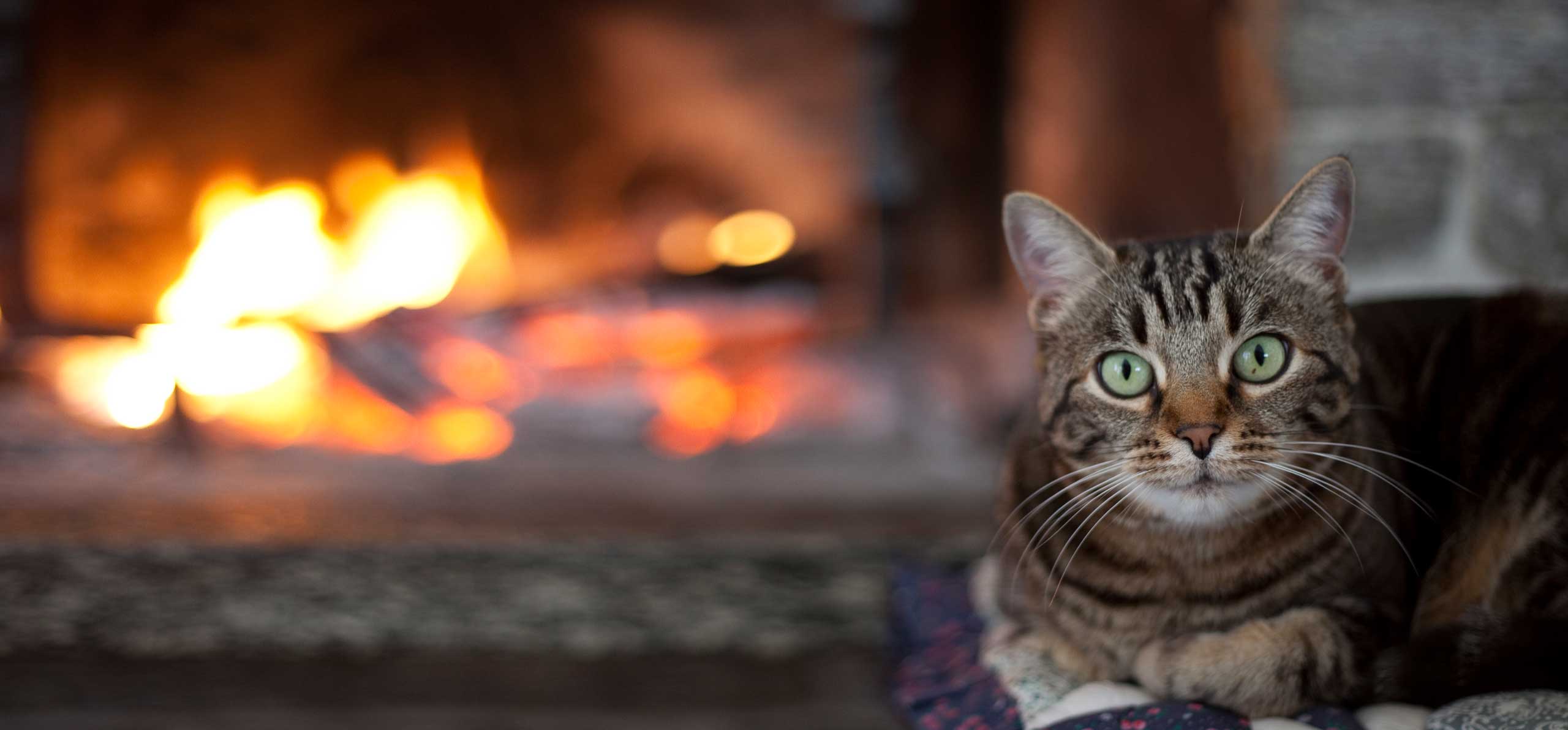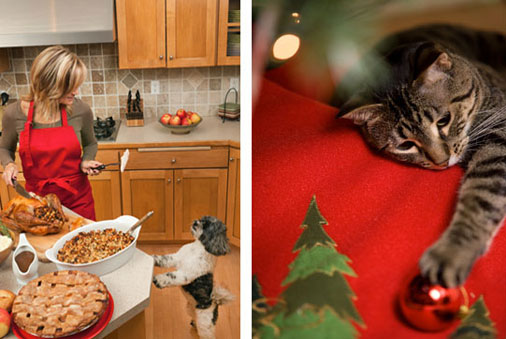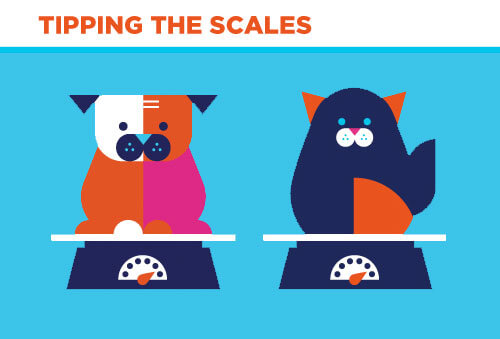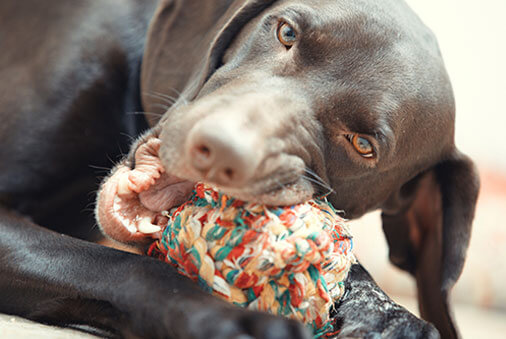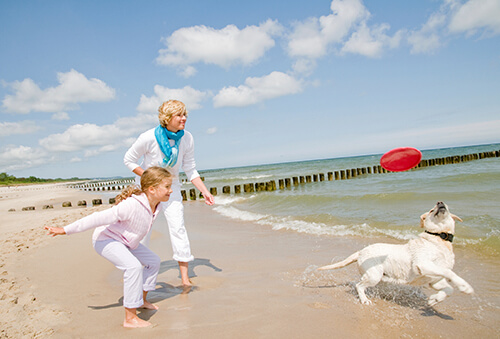While we may want our pets to be part of the celebration, there are a few important distinctions to make regarding the things they can partake in and those they shouldn’t.
With the chaos that surrounds the holiday season, it’s easy to lose track of what your puppy is getting into or what Aunt Sally is feeding the cat. Your guests wouldn’t knowingly feed your pets anything harmful, but many foods that seem perfectly safe are not actually safe for our dogs or cats, which is why you need to know what they’re eating.
Foods to Avoid
The rule of thumb to abide all year long: Avoid giving your pets table scraps. No matter how much we treat dogs and cats like family, their bodies are very different from ours.
Some foods that have great health benefits for us (e.g., avocados, grapes, onions, and raisins) can be toxic to pets. While we think of these foods as "healthy", other species don’t metabolize them the same way we do.
Even if you keep a strict “No-Table-Scrap” diet for your pets, it’s important your guests follow the same rule.
The list of harmful foods for both cats and dogs is long, so it’s best to be cautious and stick to what has been proven safe for pets. While the toxicity level will vary with the amount consumed and the size of your pet, make sure your cats and dogs don’t have any access to hazardous foods.
Foods That Are Hazardous To Cats
- Bread dough - Yeast expands in the stomach.
- Chocolate.
- Ethanol/alcohol – Yup, egg nog, too!
- Moldy foods.
- Onions and garlic.
- Grapes/Raisins.
- Fat trimmings - May cause pancreatitis.
- Bones - Can splinter and damage the digestive system.
Foods That Are Hazardous To Dogs
- Avocado - Some varieties like the Guatemalan avocado contain high amounts of persin, which is toxic to dogs.
- Chocolate.
- Grapes/raisins.
- Hops.
- Ethanol/alcohol.
- Bread dough.
- Macadamia nuts.
- Moldy foods.
- Onions and garlic.
- Xylitol - Often found in sugar-free products.
- Fat trimmings.
- Bones.
Signs That Your Pet Ate Something Poisonous
- Vomiting – Includes food, gastric fluids and/or dry heaves.
- Lack of appetite.
- Lethargy.
- Diarrhea or constipation.
- Loss of coordination/dizziness.
If you suspect your cat or dog ate something poisonous, call your veterinarian immediately. Also, keep these emergency numbers handy:
Pet Poison Helpline at 1-855-213-6680
ASPCA’s Animal Poison Control at 888-426-4435
Dangerous Decorations
The dinner table isn’t the only place you need to be careful. Holiday decorations can also pose a threat to your furry little ones. As you deck the halls, keep your pet’s safety top of mind.
Consider which decorations will look a little too tempting for them to ignore and what could be potentially harmful if ingested. All the dangling, shimmering decorations may look like toys, especially to cats who can accidentally knock over lit candles or even the whole Christmas tree.
Keep these decorations out of paw’s reach for a safer holiday:
- Mistletoe
- Poinsettias
- Tinsel
- Gift wrap ribbon
- Lit candles
- Pine needles – Be sure to clean up any fallen needles from your tree
Now that you know what to look out for (or keep out of your home completely) you can truly enjoy quality time with your entire family over the holidays – especially your precious pets!

